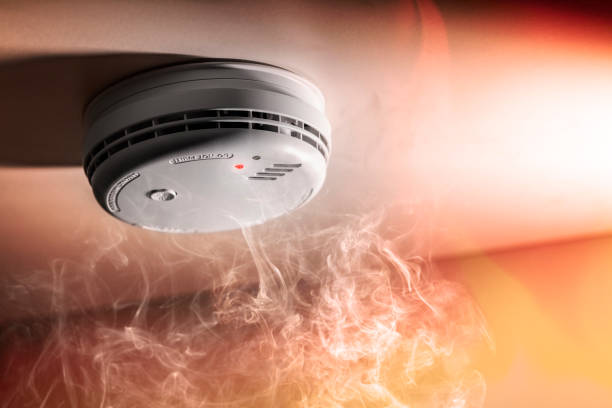Vapers beware, WCHS restrooms are no longer private smoking lounges. For many years, school restrooms have long served as a convenient and private space for students seeking to avoid adult supervision. WCHS students have used the restrooms for smoke breaks for years, rarely being punished or caught for their actions. However, this routine is now facing a serious challenge: vape detectors.
As the latest tool in the ongoing battle against the youth vaping epidemic, vape detectors have significant potential to stop student smokers. These small devices detect the aerosol and other trace chemicals that remain in the air after vaping. When vape residue is identified, an alarm is set off—much like a traditional smoke detector—alerting staff to potential violations.
Electronic cigarettes, more commonly known as vapes or e-cigs, are handheld devices that heat liquid into aerosol, which is then inhaled by users. They are often marketed with colorful packaging, appealing flavors and sleek designs, making them especially attractive to teenagers. However, despite their appealing exterior, e-cigarettes come with serious health risks.
E-cigarette use can lead to a range of long term health issues, including lung damage, heart disease and an increased risk of cancer. The Centers for Disease Control and Prevention (CDC) reports that e-cigarettes are the most commonly used tobacco product among teenagers in the U.S., with 10% admitting to using them in 2023. This is especially concerning, as for younger users, the risks are even more pronounced as their developing bodies are more susceptible to the harmful effects of nicotine and other chemicals found in e-cigarettes.
As if the personal health risks were not enough, there are also the effects of second-hand smoke to consider. While strawberry-scented air may be a pleasant departure from the usual restroom smells, sugary smells in a school restroom signal something far more sinister than air freshener. Second-hand smoke is deadly and the CDC reports that there is no safe level of exposure to second-hand smoke. Even a brief exposure that many students experience simply by using the restroom, can lead to severe health issues including lung disease, respiratory infections and slowed lung growth.
MCPS has been well aware of the growing problem of e-cigarette use among students. According to the National Broadcasting Company, over the past two years, MCPS has been involved in 424 drug related incidents, many of which included e-cigarettes.
In response to this crisis, MCPS introduced several preventative policies in the 2023 school year. One of the measures adopted by WCHS included purchasing and installing special latches to prop exterior restroom doors open, aiming to prevent students from vaping undetected by school staff. Schools were also instructed to “restrict access” to certain restrooms during unstructured school times. Unfortunately, these policies have not been consistently enforced, and the problem persists.
However, MCPS has not given up the fight. After getting involved in a lawsuit against e-cigarette manufacturer Juul, which alleged the company was advertising its product to minors, MCPS secured a $2 million settlement. The school system plans on using this money to purchase and install vape detectors in high schools across the county. MCPS has already pilot-tested these detectors at a few highschools, including Richard Montgomery HS and Walt Whitman HS.
Though vape detectors offer a promising solution to the vaping epidemic, they are not without their challenges. For instance, the detectors can sometimes mistake other substances, like perfume or steam, for vape residue, potentially triggering false alarms. While this may lead to occasional misunderstandings, the benefits of vape detectors far outweigh the drawbacks. Given the growing difficulty of catching student smokers, especially since e-cigarettes are small and easy to conceal, vape detectors represent an effective and proactive approach to a persistent problem.
Vape detectors are not just about catching rule breakers—they are about fostering a healthier school environment for everyone. By installing these devices, WCHS can allow staff to respect student privacy while maintaining 24/7 surveillance. MCPS and WCHS should prioritize the installation and maintenance of these detectors as a part of their commitment to student health. Even beyond this initial $2 million allocation, it is essential that these devices remain in use for as long as they are able to remain effective in curbing e-cigarette use.
Ultimately, vape detectors help ensure that teachers can focus on educating and students can focus on learning in a safe, clean environment free from the harmful effects of vaping and without the threat of cancer lingering in the air.















